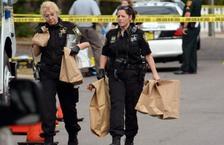A crime scene is a sensitive area that requires the methodical collection and recovery of evidence in order to deduce the events of a crime. Information is collected from this site by technicians to enable the police to correctly identify suspects and victims involved; therefore, a high degree of accuracy is required. As a technician, you have to consider the various problems you may encounter in a crime scene that might frustrate your ability to work.
1. Curiosity from spectators
Crime scenes draw a lot of attention from various quarters including the police investigation department and the media. It is also a curiosity for onlookers who could become unmanageable, therefore posing a threat to the crime scene and to your safety while working. The constant movement and presence of people is an impediment to your ability to process the site adequately. It can also make it difficult for you to meaningfully engage with potential eye-witnesses.
2. Contamination or tampering of the scene
Careless handling of the crime scene leads to contamination of evidence. When fingerprints are smudged and other items are smeared, it compromises the quality of evidence and the ability to establish crucial details. Always wear plastic gloves and package everything you find in individual evidence bags. It is important to have a clear log or inventory of items in the scene and label them appropriately when placing them in bags to avoid confusion.
3. Loss of evidence
The biggest impediment to an investigation is the removal or loss of a piece of evidence from the scene of a crime. Due to the high movement of human traffic in a crime scene, it is likely for items to be misplaced, stolen or moved. Instances like these occur when technicians fail to arrive at the crime scene within the shortest time possible; to avoid this, ensure the scene is kept securely by law enforcement departments.
4. Conflict with other departments
Determining who has jurisdiction over a crime scene tends to lead to a lot of conflict. You might find yourself clashing with the police because they demand that collected evidence belongs to them, or having problems with other local departments such as the council who wish to have the place cleared as soon as possible. Ensure you work in collaboration with these other interested parties to avoid confusion, contamination and conflict.
5. Ease of access
Adverse weather conditions, proximity to the crime scene and other environmental factors can affect your ability to gain access to the crime scene, and this can adversely affect the quality of evidence and results from testing. While these are outside your control, adaptability as a technician and a keen eye will enable you to conduct your work even under these circumstances.
Ultimately, only a small number of people should work at a crime scene. Make sure you are in a team of not more than five individuals with diverging fields of expertise so that you each have delegated responsibilities. Police presence is also necessary so that you can work safely without further interference from the public or unauthorized individuals. Keep evidence safely in individual bags, and note down every detail that you collect. Taking photographs is helpful as you can use them for reference once the scene has been cleared out.

